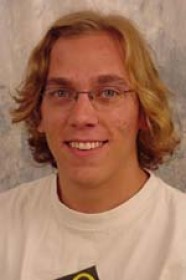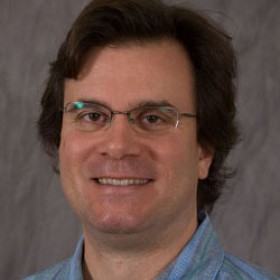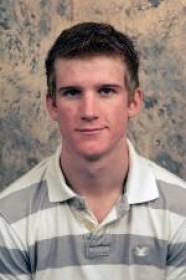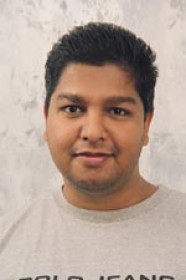Toward Versatile Structural Modification for Bayesian Nonparametric Time Series Models
Event Location: GHC 6501Abstract: Unsupervised learning techniques discover organizational structure in data, but to do so they must approach the problem with a priori assumptions. A fundamental trend in the development of these techniques has been the relaxation or elimination of the unwanted or arbitrary structural assumptions they impose. For systems that derive hidden Markov [...]
Temporal Causality for Visual Event Analysis
Event Location: NSH 1305Bio: Jim Rehg is a Professor in the School of Interactive Computing at the Georgia Institute of Technology. He is co-Director of the Computational Perception Lab and Associate Director of Research in the Center for Robotics and Intelligent Machines. He received his Ph.D. from CMU in 1995 and worked at the Cambridge [...]
ROBOT 30: The 30th Anniversary of the Robotics Institute
Event Location: Carnegie Mellon University campusAbstract: On April, 15 & 16, 2010 we will celebrate ROBOT 30, The Robotics Institute's 30th anniversary with an open house that will include lectures, demonstrations, tours of our facility and an anniversary reception. We will be holding this event in conjunction with Carnegie Mellon's Carnival & Reunion Weekend and [...]
Next-generation Interactive Simulation
Event Location: Rashid Auditorium - Gates and Hillman Centers 4401Bio: I am an Assistant Professor in the computer graphics group at Carnegie Mellon University. I received my PhD under Zoran Popovic in the computer graphics group at the University of Washington, and was a postdoc in the Baker Group under Zoran Popovic and David Baker. [...]
Perching on Walls: toward hybrid aerial/scansorial robotics
Event Location: NSH 1305Bio: Mark Cutkosky (Ph.D. CMU 1985) is a Professor in Mechanical Engineering at Stanford University. He formerly was a lecturer at CMU and a design engineer at ALCOA. He has lead numerous projects in dexterous manipulation, haptics, bio-inspired robotics and design collaboration. He has graduated over 30 Ph.D. students in these areas, [...]
Target Tracking, Geolocation, and Search with Small UAVs
Event Location: NSH 1109Bio: Michael is a Ph.D student at the Robotics Institute.Abstract: Cooperative surveillance using teams of unmanned aerial vehicles (UAVs) is a fruitful area of study given the many real-world applications and open research problems it offers. In this talk I will present our vision for such teams in an air-ground collaboration context [...]
Global Scan-Matching for Incremental Map Construction Using Line Features
Event Location: NSH 1109Bio: Don Burnette is a Ph.D. student at the Robotics Institute. Abstract: I propose a laser based odometry algorithm which utilizes line feature based scan matching to determine the pose of a robot in an unknown, structured environment, while incrementally building a map of that environment. The algorithm is tested on a variety of data sets, using different types of laser range scanners, in various real world environments. The algorithm incrementally generates line-feature based maps in real-time as the robot moves throughout the environment, [...]
Closed-Form Analysis of Human Motion in Monocular Videos
Event Location: NSH 1507Abstract: When interacting with our surroundings, our actions are highly structured. This structure is a consequence of the purposefulness of human behavior --- we tend to do similar things in similar circumstances. Artificial systems must develop an understanding of the underlying dynamics that encode this structure to understand human actions in a [...]







